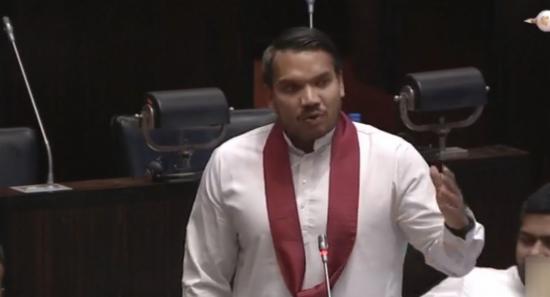.webp)

Power Play: Unions Oppose Splitting CEB in Major Reform Clash
COLOMBO (News 1st); Sri Lanka’s electricity sector, long plagued by financial losses, political interference, and operational inefficiencies, is now at the center of a fierce dispute as electricity engineers and allied trade unions initiate industrial action protesting the government’s radical restructuring of the Ceylon Electricity Board (CEB).
In the wake of Parliament’s approval of the Sri Lanka Electricity (Amendment) Act No. 14 of 2025, which unbundled CEB into four separate state-owned companies, electricity engineers have begun a work-to-rule campaign signaling their refusal to cooperate with the Ministry of Power’s directives. This union resistance is amplified by workers affiliated with opposition parties such as the Samagi Jana Balawegaya, the Sri Lanka Podujana Peramuna, and the Sri Lanka Freedom Party, who also engage in limited strike actions.
The backdrop is a decade-long trend of staggering losses at CEB recorded between 2015 and 2023. Official annual reports reveal cumulative losses of over Rs. 594 billion, with a dramatic spike to Rs. 309 billion in 2022 alone. Losses rose from Rs. 14.5 billion in 2016 to nearly Rs. 97 billion in 2019, underscoring years of financial mismanagement.
Root causes include politicized recruitment processes bypassing merit exams, inflated staffing, privileged allowances for officials, and a failure to adjust tariffs in line with operational costs. Such factors combined forced the board into unsustainable debt levels, impairing its ability to finance operations effectively.
The consequences were severe: sustained daily power outages ranging from 10 to 12 hours devastated households and businesses nationwide, severely impacting quality of life. To mitigate fiscal strain, the government implemented an unprecedented electricity tariff hike of approximately 200% in a single adjustment, transferring the burden directly onto the public amid an ongoing economic crisis.
The government’s restructuring plan, shaped under IMF bailout stipulations, aims to divide CEB’s vertically integrated monopoly into distinct entities for generation, transmission, distribution, and marketing to foster transparency and efficiency. Proponents argue that unbundling will facilitate clearer accountability for losses and introduce competitive pressures to reduce costs.
CEO and advocate Dhananath Fernando explained, “These are fundamentally different business segments with separate assets and operational models.” The reform also offers the possibility of better regulation and performance oversight.
However, the move has been met with fierce opposition from unions representing CEB engineers and other staff. They fear the restructuring will undermine job security, erase privileges, and downgrade important management roles—demanding provincial directors appointed as deputy chief executives. Additionally, the unions seek overdue wage increases, incorporation of allowances into base pay, and abolition of caps on retirement benefits. They contend these demands are vital to protecting employee rights amid sweeping changes.
Economist Professor Vasantha Athukorala of Peradeniya University highlights the need for balance: “While reforms are necessary, utilities must operate under government policy prioritizing public interest rather than exclusive union negotiations, as ultimately taxpayers fund these services.”
Engineering academic Professor Asanka Rodrigo of Moratuwa University underscored the potential benefits, saying, “Competition among generation companies and improved efficiency in transmission and distribution could lower tariffs significantly. Transparency in accounting will allow consumers to pay fair prices.”
Yet, escalating labor unrest threatens disruptions in power supply just as consumers face already high bills. With strike warnings intensifying, the sector stands at a critical juncture: whether the restructuring can succeed in returning CEB to financial and operational health without further destabilizing the economy.
Other Articles
Featured News





.png )










-810262_550x300.jpg)
-809496_550x300.jpg)











.webp)






